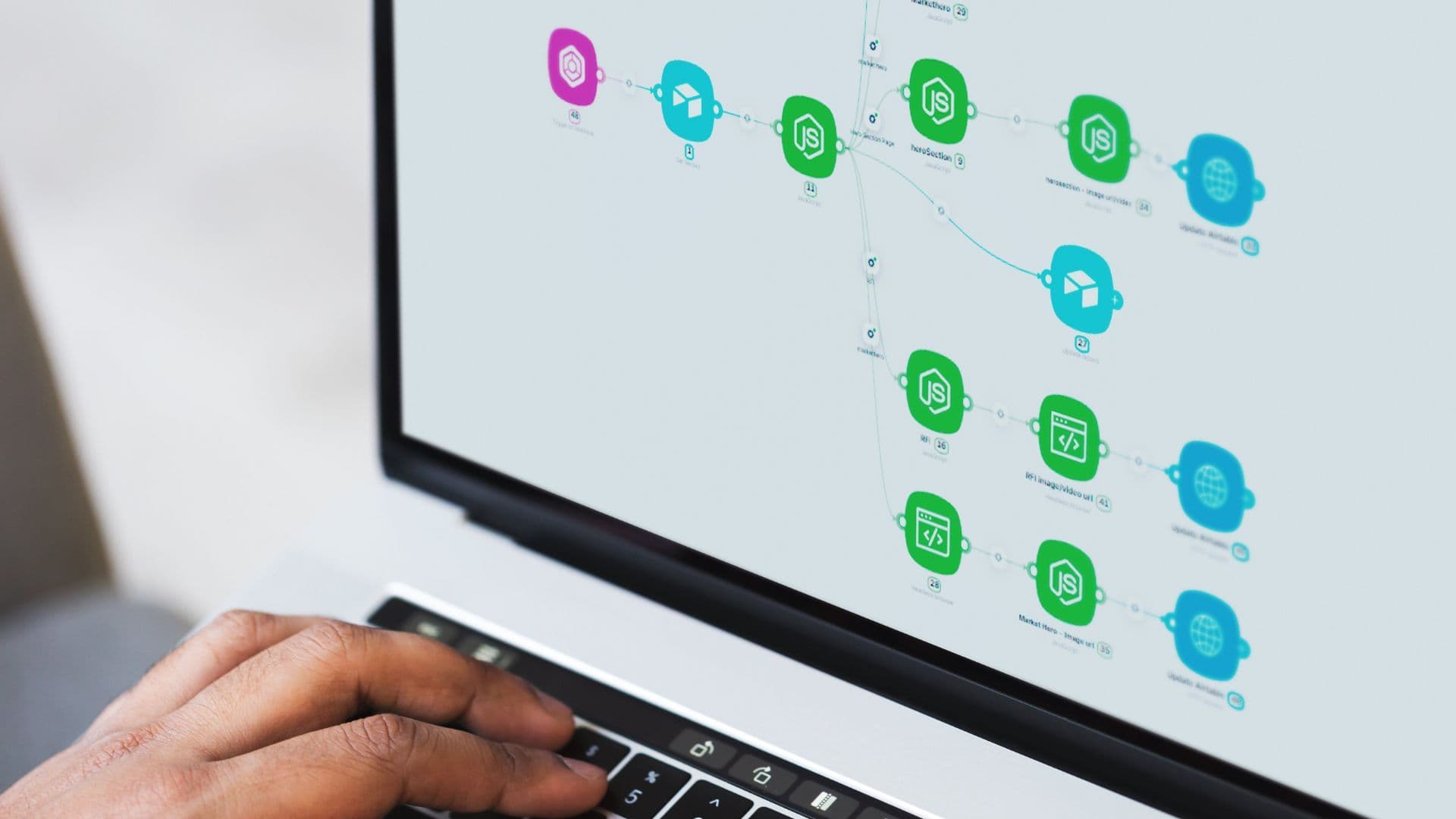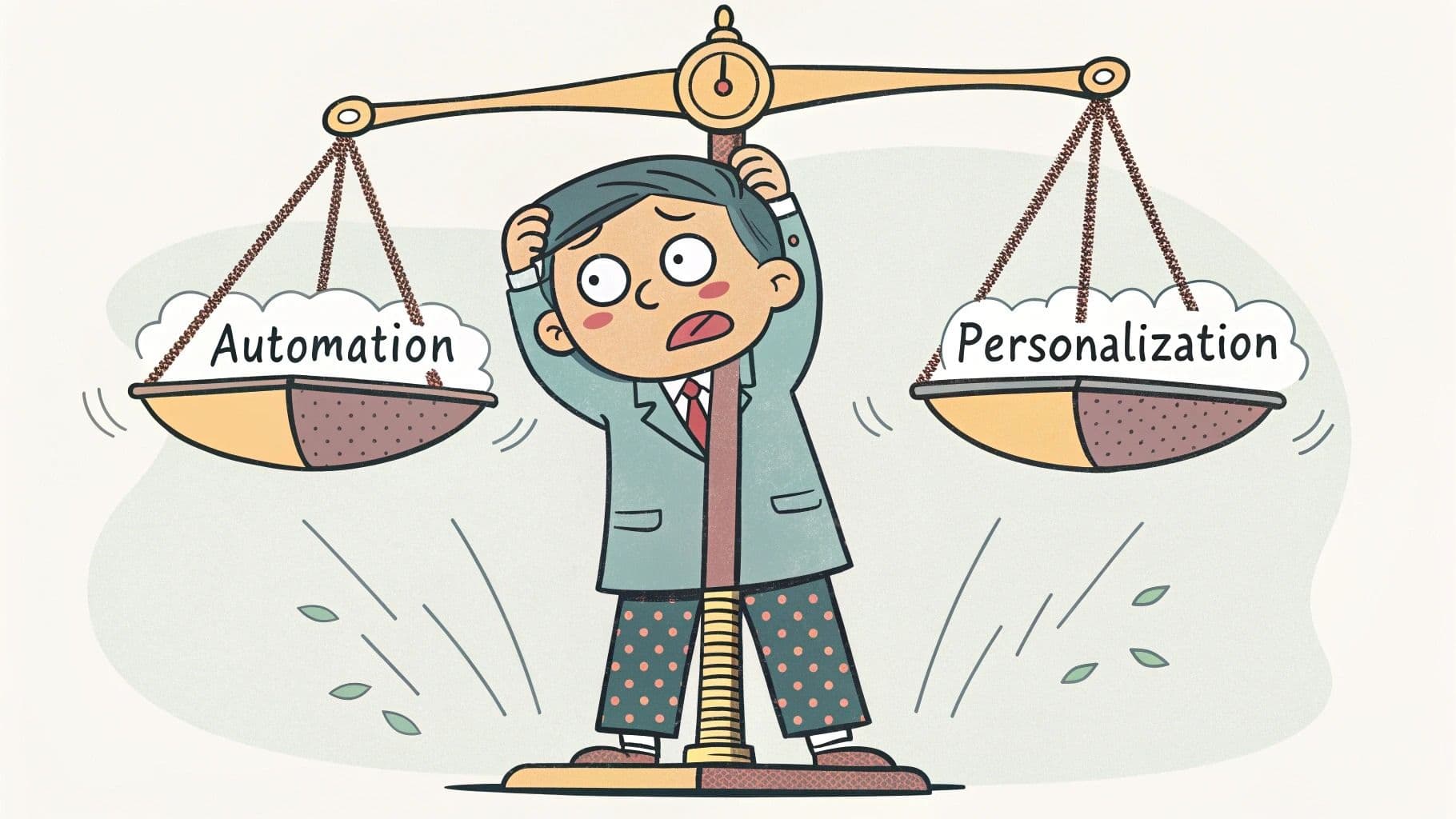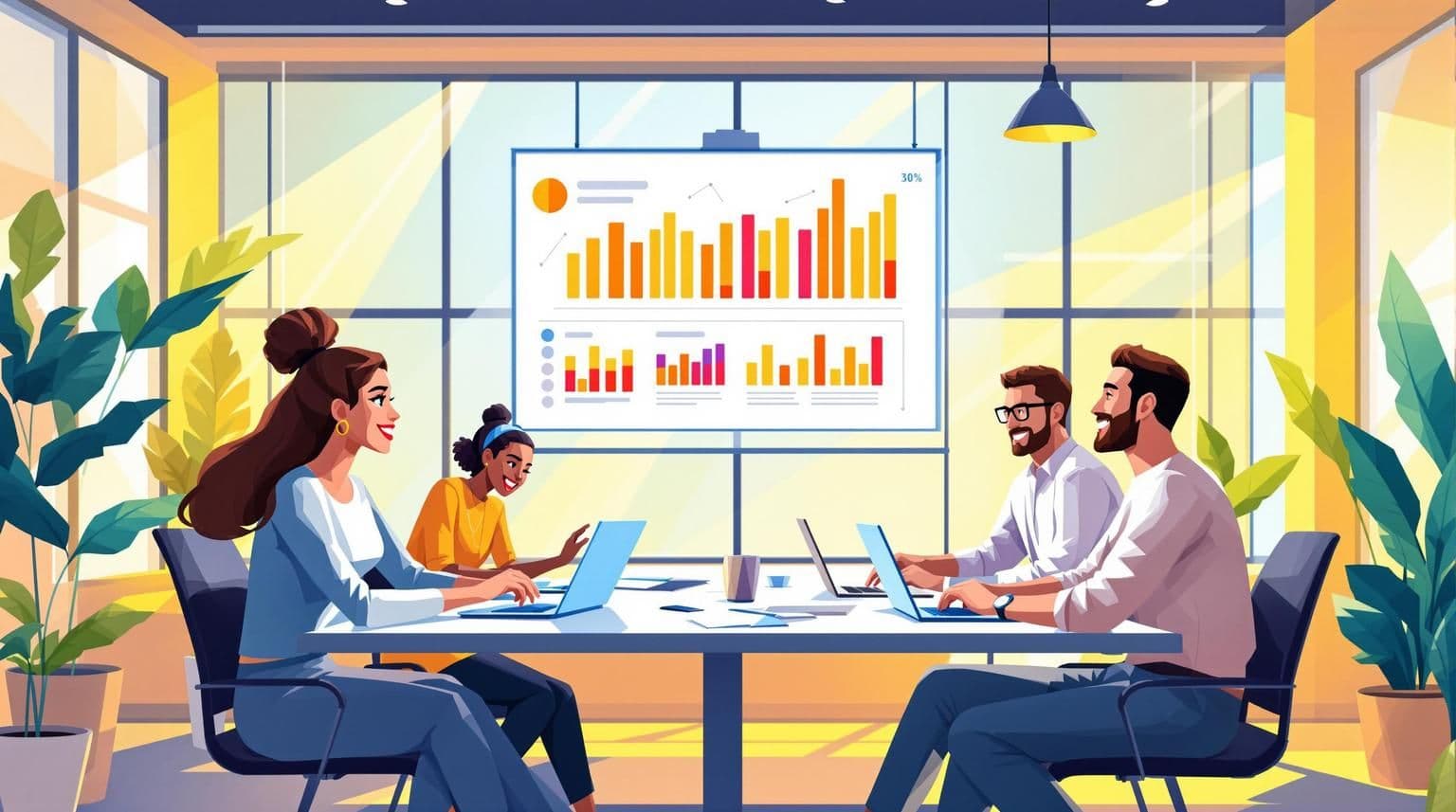Save 23% of Your Ad Budget With This Scenario
Discover how 3Nuggets saved 23% on ad budgets using low-code automation on Latenode to analyze 4K landing pages and 16K ads. Learn automation secrets here!

If you manage the promotion of a huge number of products and services, you know that matching landing pages to their associated ads takes a lot of time and challenge. Mismatches can lead to conversion declines, loss of creditability, and significant losses. That’s why we spoke to Dimitris Goudis of 3Nuggets, a Greek agency that builds operational systems for companies.
He and the team found a way to leverage low-code automation on Latenode and tackle this challenge at a massive scale of 4K landing pages and 16K ad combinations. The result was a savings of $25,000 per the first week after the implementation and 23% of total ad budgets per quarter. Check out his insights and case study below!
Key Takeaways: 3Nuggets, a Greek automation agency, built a system that analyzes landing pages and their corresponding ads at scale, saving clients 23% of ad spend while maintaining performance. The solution automates screenshot capture and content analysis of 4,000 landing pages and 16,000 ad combinations monthly, using headless browser and AI technologies.
Want to know how to cut your ad spending with no harm to quality? Ask our partner, Dimitris!
What is 3Nuggets?
Could you tell us about the niches and services where your agency is the best?
Dimitris Goudis: We are building operational systems for companies. Our services include:
- ERP systems development with deep accounting understanding for construction and commercial companies to handle inventory and order tracking.
- Automation of conversations and lead tracking through CRM implementations.
- Creation of task trackers for companies across all industries.
- ERP systems for e-commerce companies to manage orders and products.
- Integrating systems with B2B platforms and commercial CMS solutions like Shopify or WordPress.
So, you're automating repetitive tasks, data entry, and data management, right?
Dimitris Goudis: Yes, that's right. That's the main part that we try to automate. We take care of the data accuracy at every stage.
How broad is the range of companies you're handling automation for?
Dimitris Goudis: We collaborate with multinational companies in the USA, Europe, and Australia. It's not about the size of the company or industry – it's mostly about their challenges and what improvements they want us to make. Many of our clients are either startups or established businesses that already work with scrappy tools like Google Sheets. So, these companies are looking for consultants to make the existing system more powerful and efficient.
Let's focus on celebrating our customers' experiences. Many businesses struggle to deliver the right value proposition to the right audience. Could you tell more about trends you're observing in marketing, especially how automation impacts them?
Dimitris Goudis: You know, the core value is credibility. When we try to market ourselves, or when our clients try to market themselves, it all comes down to how they're building credibility with their prospects. Today, we're seeing this huge trend with AI and using automations to handle prospect conversations.
Here's the thing - in about 90% of cases, these processes are missing that crucial human touch and personalization. As a result, brands lose their credibility. That's why when we talk with a client, we emphasize this point: ‘If we're just copying something you saw in an online video, we're going to lose credibility. Let's dive deeper and add that human touch.’
For example, we can use Latenode to build a scenario with data enrichment. From one form submission, we can collect multiple pieces of data about people and companies. Instead of going and saying: ‘We are very powerful in your industry,’ we take a more strategic approach. We prepare a dashboard for the lead manager that immediately flags what’s important and what’s not. From there, we can prepare a personalized conversation.
![]()
Are companies today more focused on external communications, or is there a growing need for other types of automation?
Dimitris Goudis: Most conversations with my clients actually start with them wanting to automate their communications – particularly promotional ones. They come to us with clear goals:
- Building automated funnels
- Generating leads
- Converting them into clients
- Automating how they post on LinkedIn and Instagram
I also see that they haven't automated internal processes. This is the pain point they often don't realize. In such cases, we explain the operational part.
If an automated system brings more clients when the foundational management isn’t solid, this growth could harm the experience for current clients. After setting that context, we’re listing other key pain points – areas where they spend more time or lose data. From their feedback, we try to automate internally first and move on to communication or content creation.
How do you see AI automation adoption unfolding in the next five years? Are there any specific sectors where you predict an increase in demand for solutions like yours?
Dimitris Goudis: Let me rephrase it a little bit. I cannot see the need for other services, but I can imagine the need for solutions for clients. I see a very big need for clients to have a conversational experience. The challenge is that responses from any AI are not 100% accurate.
So, in the next five years, we may need to build features for internal data. Imagine you're the CEO of a company, and you want to know specific details right now. Instead of calling your assistant or creating a report yourself, you can just post a question to an AI-system and receive the response quickly.
The amount of AI-generated content will decrease, in fact, because human-created content will be more recognized and valued. I've already stopped engaging with AI content - it doesn't make sense when everyone delivers the same messages.
So, you see that we're going to have the rise of sincere email & business communication with a personal touch, instead of automated communication?
Dimitris Goudis: Maybe. Sometimes we struggle to manage our calendar even if we automate it. I think AI could manage it better - checking across different emails and calendars, saying "Okay, you are available." It can also calculate that this is an online conversation versus a physical meeting, knowing from previous data where you'll be and how much time you need. I'm just describing a simple daily task we all have. I think this will definitely be managed by AI.
Usecase: Analyzing Landing Pages and Associated Ad Copies
Let me ask more specifically about your case of classifying ads and landing pages. Your solution seems unique - two scenarios allow for screenshotting 4,000 landing pages and then using AI to analyze associated ads. I never heard about this before. Could you explain this solution?
Dimitris Goudis: The challenge here is that our client, a multinational construction company, has two different departments - ads copy creation and the landing page team. These teams work asynchronously, preparing ad copy for landing pages. The team generates 4,000 landing pages per month, with each having a minimum of four different ad copy versions. So we're dealing with 16,000 combinations per month.
To meet this challenge, we needed to verify if the copies matched on both ads and landing pages because we found many mismatches. We also needed to track ad spend errors and redirect URLs. We couldn't find any existing application to manage this, so we needed a very strict audit system with human review at the end.
A workflow is made to:
![]()
- Take the ads copy from the Airtable database
- Take the copy from the delivered landing page
- Take screenshots of these pages via Headless Browser nodes
- Recognize key elements
- Update the Airtable database with a new status
Then, a separate scenario makes comparisons between ads and actual text.
![]()
There are four comparison fields:
- Language (sometimes Spanish ads pointed to English pages)
- Value proposition
- Target group
- Location
![]()
We upload the text from ads and landing pages to an AI system for matching analysis. The AI responds with something like ‘This page has a match on location, has a match on target group, doesn't have a matching value proposition.’ This creates an auto-generated rating system.
![]()
Results:
- Saved $25,000 in the first week for the client by cutting off error pages
- Decreased ad spending by 23% in the first quarter while maintaining the same results
- Process handles 1,000+ landing pages in 24 hours
- Total cost: about $20 including AI spending for processing 4,000 pages
- Both workflows consume 1 credit each, which is about $0.0019 per execution
- Implementation completed in just 5 days
- One person can now effectively audit their assigned area
This system has transformed their marketing operations, allowing for systematic quality control of all marketing materials while significantly reducing costs and improving efficiency.
We gave this presentation to the CEO showing the exact 23% savings, and he couldn’t believe that while the costs dropped, the quality hadn’t decreased. The departments now have an extra budget and can either return it to the company or make more efficient ads to achieve their goals faster.
Want to ask Dimitris about this workflow? Reach out to him on Forum!
How do JavaScript and Headless Browser nodes work within your scenarios, specifically? Can you give a short explanation of why they’re needed?
Dimitris Goudis: A headless browser is necessary to open the page and take the screenshot. I know from the customer support conversation that we could take the screenshot with JavaScript, but they recommended using the Headless Browser for more technical reasons. So, we take the screenshot using the Headless browser.
Then, with JavaScript, we open the page and scrape the image or the video as an attachment. We need to know the call to action above the bottoms, get the button text, and a specific field flagging – the location and area – to use it in our comparisons. Also, headers and paragraphs are scraped separately. So, JavaScript was responsible for all of this. These nodes were also needed to upload the results to our database.
Why can't Make, Zapier, or other services handle this use case? What capabilities does Latenode offer that others don't?
Dimitris Goudis: I’d say about several things:
You know, as developers, we’ve got to be responsible for what we recommend to our clients, right? The other applications don't have what we needed, which is the headless browser node. This is very, very important, and this is what makes Latenode more powerful. Also, other services don't really support JavaScript.
And it's not only JavaScript and where you can run your code - it's also the immediate, nested integration with AI copilot. It made it quite easy and fast to write scripts.
The other important thing we see and enjoy on Latenode is AI nodes. We have a library of many AI nodes. We can make various custom apps and use them specifically for different scopes. There is no need for a subscription to those apps because we pay from our credits on Latenode.
![]() AI Node Generator in Use. The text in the image is a sample
AI Node Generator in Use. The text in the image is a sample
One more thing is the customer support we receive. This is important, because, you know, when you recommend a new tool to clients, they want to know how they're gonna improve their lives with it. You may find some troubles, we know that. The support replies in a couple of minutes, not hours.
In most cases, we have conversations in chat where customer support recommends new workflows and suggests new approaches to try. They also help with code corrections - when we send code and say we can't find what's not working, they fix it immediately. This helps us deliver solutions faster, and we feel that someone is always there to take care of us.
One last thing I can say is that the pricing model is totally different from other services. It’s more cost-efficient for us to use and run everything. However, what I mentioned about customer support is more important for us. I think companies care more about what they get when they pay, not how much they pay per solution.
3Nuggets Agency’s Expertise in Automation
Since we're talking about all this automation and stuff, are you a technical expert? Or, do you have technical knowledge from a different background?
Dimitris Goudis: My background is in finance and business. That's where I started. However, years ago, I joined a tech domain. After graduation, two friends and I decided to join dropshipping, which was a big trend in those years. We realized from the first days after preparing the store that we needed to build automation and workflows to keep everything managed. So, we automated repetitive processes, instead of spending hours on endless tasks.
Then, I started using no-code applications. After that, I was hired by a company based in Athens to build an operational system for their e-commerce marketplace. It was a challenging experience since they had two different warehouses, and were doing B2B sales to about 205 stores, as I remember. The scope was managing the whole 3PL (Third-Party Logistics) system - we needed to keep stock for each product at minimum levels to avoid excess inventory waiting for sales.
I was responsible for building the operational part without coding - I just had to design the systems and deliver workflow graphs to the ERP company.
Sounds like you have a lot of experience in automation. What no-code and low-code tools do you use in your work?
Dimitris Goudis: We use 8 different apps at 3Nuggets:
![]()
- Our everyday application is Airtable for data storage and integration with multiple front-end apps. We have a specialization in this service – we are certified.
- We also use no-code automation platforms – I started five years ago with common ones like Zapier, and then Integromat, which was later renamed to Make.
- In the last year, we've been using Latenode for new low-code tasks.
- Our stack also includes Xano, Noloco, Softr, and Glide.
Thank you for this wonderful conversation, Dimitris! Can we stay in touch on our community forum?
Dimitris Goudis: Absolutely, whatever works for you guys!
Need Help with Automation on Latenode? Book a Demo!
We greatly appreciate Dimitris's valuable time and insights. Interested in learning how to build complex systems on Latenode? Use the form below to schedule a paid workshop with our manager. If you run an automation agency and want to know more about Latenode's features and partner program, please tell us about that in the same form and schedule a free call.



